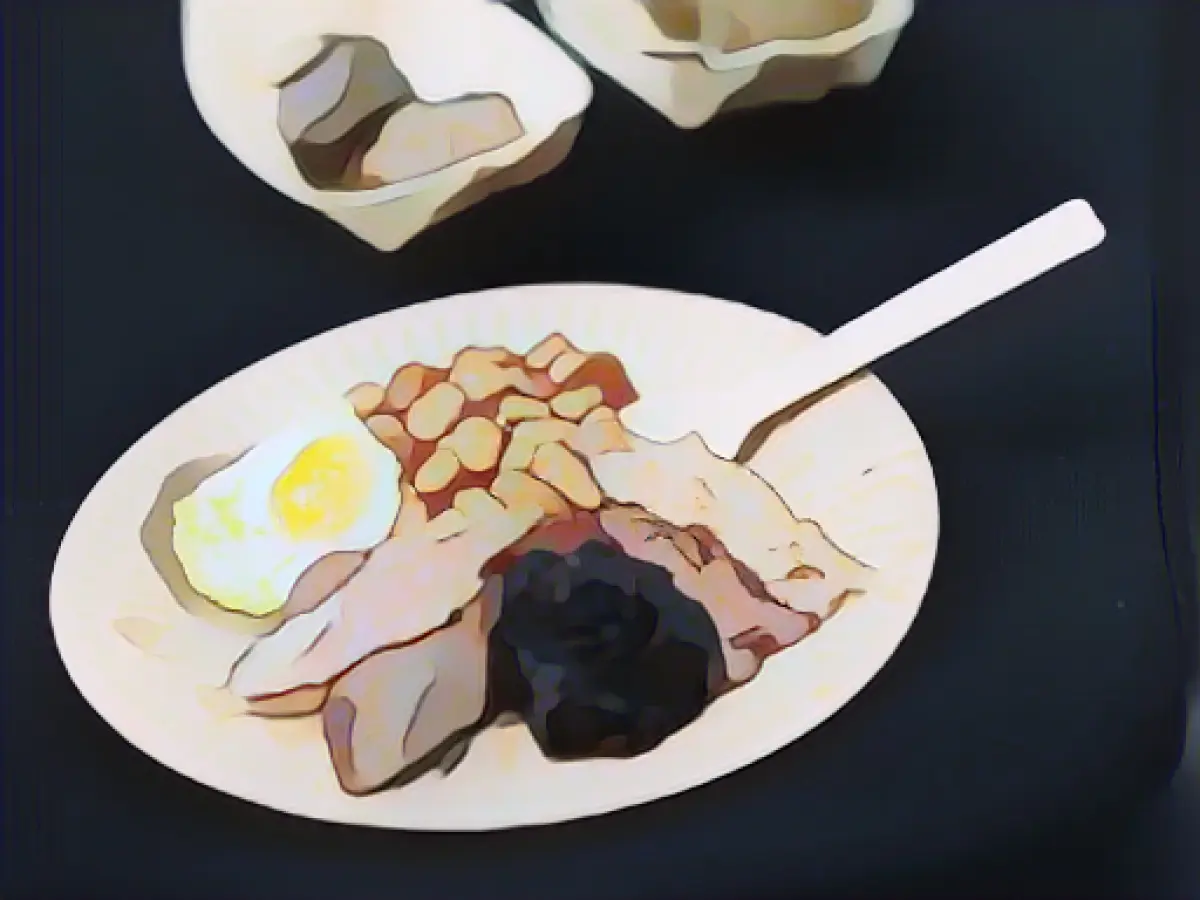What makes an English Breakfast
Hash browns? No, Guise Bule would certainly not have fried potato cakes with his Full English Breakfast. Instead, you should have bubble and squeak, a dish made from mashed potatoes and mashed cabbage. "The English have always had that on their plates. But someone has decided that it's easier to deep-fry these reconstituted squares," grumbles Bule. You can only get that at McDonald's. And he should know. After all, Bule is head of the English Breakfast Society - which is celebrating English Breakfast Day this Saturday.
Bacon, sausage, baked beans, egg, perhaps half a fried mushroom, of course bubble and squeak or some black pudding, i.e. black pudding. Toast, of course. That's a Full English the way society would like it. Okay, tomato is usually included, but nobody would like it anyway, says Bule. Nevertheless, it is important for him to emphasize: "We are not dogmatic." If you want to eat hash browns or smoked kippers - go ahead.
Content is ultimately of secondary importance, he says, and there are regional variations that spice up the tradition. Black pudding, for example, is a favorite in Scotland - where breakfast is of course served as a Scottish breakfast - or in the north of England.
Attracting tourists with cheap breakfasts
No, the company is concerned with the origin. "An English breakfast is something whose ingredients come from the United Kingdom," says Bule in an interview with Deutsche Presse-Agentur. When he expresses his indignation at the fact that in recent years many cafés and restaurants have lured tourists in with cheap breakfasts and sold them as originals, the word "shit" is often used. So it's not surprising when holidaymakers from the UK return home and complain about British cuisine.
"The new socio-economic distinction", Bule calls it. On the one hand, the cheap "fry-up", which means nothing and comes from imported junk - and on the other, the real English breakfast made from traditional ingredients such as sausages from Cumberland or Lincolnshire. "It's a traditional meal that should be served with pride, with ingredients that come from the British Isles," says the Society boss.
He is therefore delighted that the future of an ingredient that is on the brink of extinction could be secured: Baked beans. As the BBC recently reported, white beans (haricots) grown in the UK were used successfully for the first time for the dish baked in tomato sauce. More than two million cans of baked beans are eaten in the UK every day, with the beans coming from the USA, Canada, Ethiopia and China. It will probably be some time before British beans reach the supermarkets. But farmer Andrew Ward has already spoken of an "absolute milestone". "The fact that we are able to produce something in such large quantities that we consume in such large quantities in this country is just incredible."
Changes throughout history
The breakfast tradition is ancient. Centuries ago, wealthy Anglo-Saxons would serve up whatever cuisine and hunting success they could to impress friends and foes. The emphasis on English also came about because of the Norman invasion, the invaders brought new words and new foods with them. Later, the tradition was adopted by the nouveau riche, and as the Industrial Revolution put more money in their pockets, more and more people could afford a decent breakfast.
It was not until the beginning of the 20th century that the English breakfast in its current, standardized form emerged, which was now offered in a very similar and recognizable way in bed and breakfasts, hotels, cafés and trains. People knew what they were getting. In the early 1950s, around half of Britons started their day with a Full English. That has long since changed. People who work at a desk prefer to do without the huge amount of calories. That's why for many, the big British breakfast is something for the weekend. For Society boss Bule, it's only logical: "The best English breakfast is at home," he says and laughs.
At the English Breakfast Society's annual celebration on December 2, visitors can expect a variety of colorful customs surrounding the Full English Breakfast. Participants often dress in traditional attire, adding to the festive mood of the day.
During the interview with Deutsche Presse-Agentur, the head of the English Breakfast Society emphasized the importance of using locally sourced ingredients, such as British baked beans, in an authentic English Breakfast.
Source: www.dpa.com






